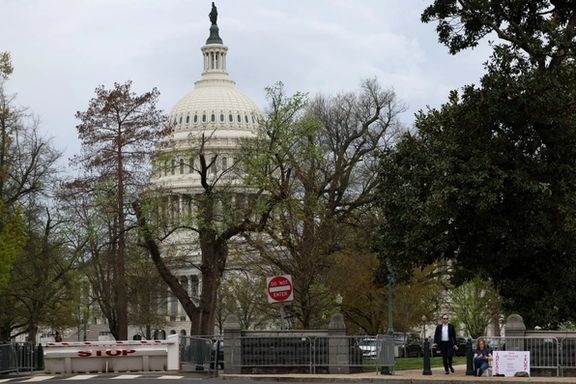Iran condemns 'racist' US travel ban

Iran on Saturday condemned a US decision to bar citizens from 12 countries, including Iran, from entering the United States, calling it a “racist and discriminatory measure” that violates international law.

Iran on Saturday condemned a US decision to bar citizens from 12 countries, including Iran, from entering the United States, calling it a “racist and discriminatory measure” that violates international law.
The response came after US President Donald Trump signed a proclamation on Wednesday banning most travelers from a dozen nations, citing terrorism and national security concerns.
Alireza Hashemi Raja, director general for Iranian Affairs Abroad at Iran’s Foreign Ministry, said the move reflected “a supremacist and racist mindset” in Washington.
"This decision targets Iranian nationals solely based on their religion and nationality,” he said in a statement. “It constitutes racial discrimination and systemic racism within the American ruling establishment.”
He added that the ban showed "deep-seated hostility toward the Iranian people and Muslims" and amounted to a violation of international legal norms, including the prohibition of discrimination and basic human rights.
Hashemi Raja urged the United Nations and international rights groups to oppose the order, saying Iran would take “all necessary measures” to protect its citizens abroad.
US cites Iran's terror record, lack of cooperation
The proclamation said Iran is a state sponsor of terrorism and regularly fails to cooperate with US security agencies. It added that Tehran has historically refused to take back its deported nationals.
“Iran is the source of significant terrorism around the world,” the statement said.
Trump defended the order on Thursday, saying countries on the list “don’t have things under control.” Speaking to reporters at the White House, he added: “We want to keep bad people out of our country.”
Ban includes 12 nations, partial limits for 7 more
Effective June 9, the directive restricts travel from Afghanistan, Myanmar, Chad, Congo, Equatorial Guinea, Eritrea, Haiti, Iran, Libya, Somalia, Sudan, and Yemen.
Seven additional countries — Burundi, Cuba, Laos, Sierra Leone, Togo, Turkmenistan, and Venezuela — face partial restrictions.
The White House said the decision followed a security review that found “persistent failures” in identity verification, criminal recordkeeping, and counterterrorism cooperation.
Exceptions and past cases cited by US
The order exempts US permanent residents, valid visa holders, and individuals deemed to serve national interests. It also excludes persecuted ethnic or religious minorities from the ban.
Trump cited recent violent incidents involving foreign nationals — including a Molotov cocktail attack in Colorado — as evidence of the need for stronger screening. The suspect in that case was Egyptian, a country not affected by the ban.